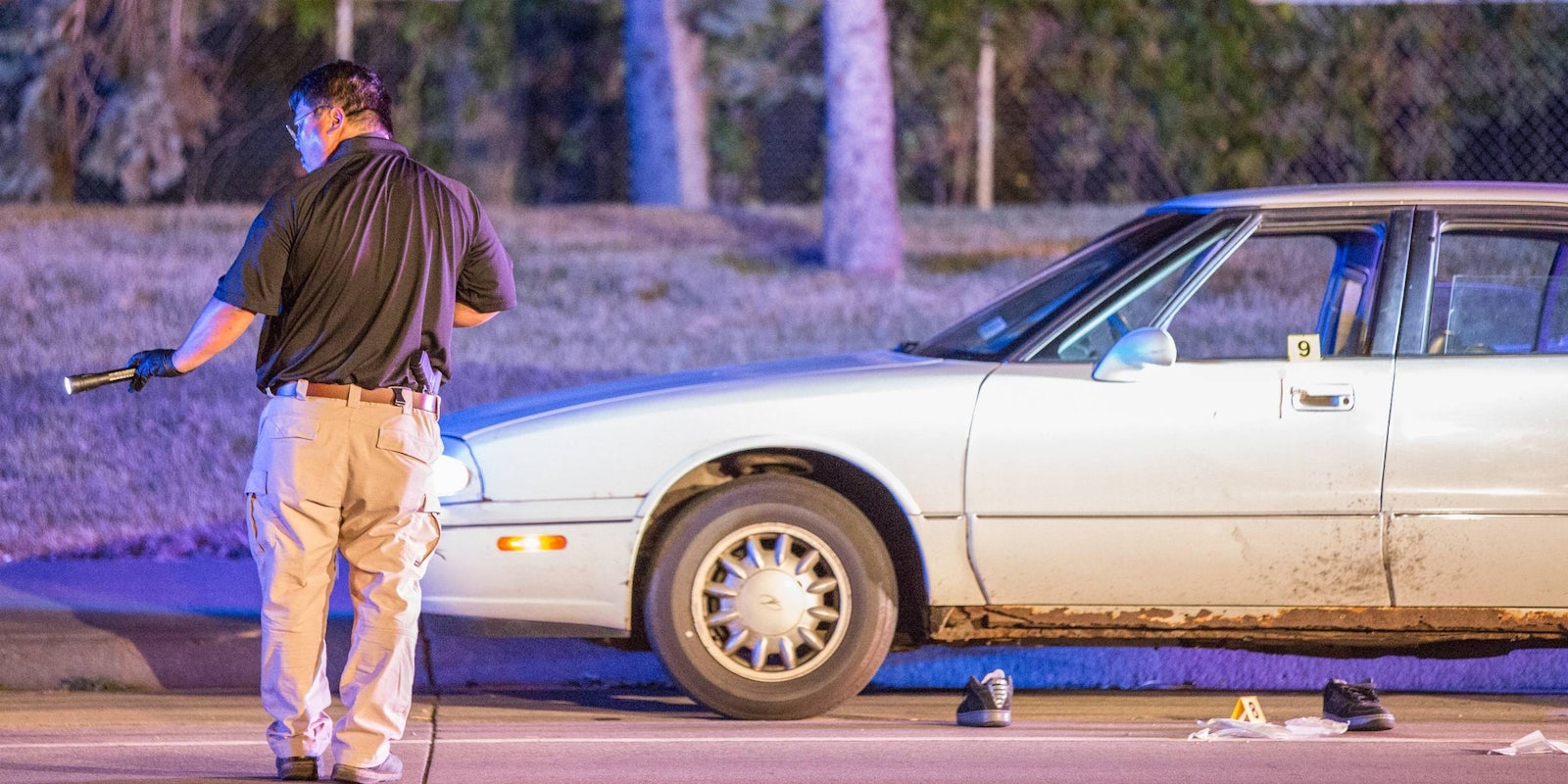Two years ago, after the fatal shooting of Michael Brown in Ferguson, many reporters sought to contextualise the tragedy, only to discover for the first time that there is no reliable source of data regarding police-involved deaths at any level of the federal government.
That’s about to change in a major way.
The U.S. Department of Justice is now working to remedy the problem once described by Eric Holder, U.S. attorney general at the time of Brown’s death, as an “unacceptable” and “troubling reality.”
In a statement this week, the DOJ said it would soon begin to collect a comprehensive list of fatal officer-involved incidents. Police departments nationwide will be required under existing federal law to provide the Justice Department with full details of fatal encounters with citizens on a quarterly basis. The data will be made available through a publicly accessible database.
Furthermore, federal investigators will actively work to confirm cases of officer-involved deaths reported by the media and other open source platforms, such as the Counted, a project founded by the Guardian newspaper last year to document every American killed by police.
According to Jon Swaine, the principal reporter behind the Counted, the DOJ’s new database was influenced by the Guardian project.
“Accurate and comprehensive accounting of deaths that occur during the process of arrest is critical for law enforcement agencies to demonstrate responsiveness to the citizens and communities they serve,” the DOJ said in a statement.
Last year, a Wall Street Journal investigation into data collected by the Federal Bureau of Investigation, which police departments provided on a voluntary basis, revealed more than 500 deaths missing from the records between 2007 and 2012. The study only reviewed data submitted by 105 of the country’s largest police departments out of a total of more than 15,000.
H/T The Guardian


